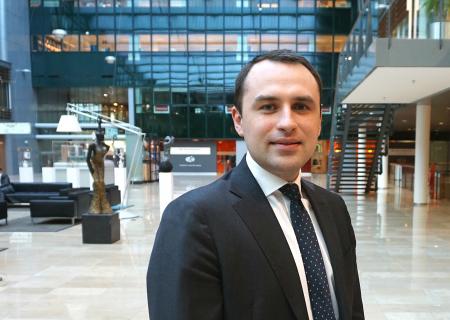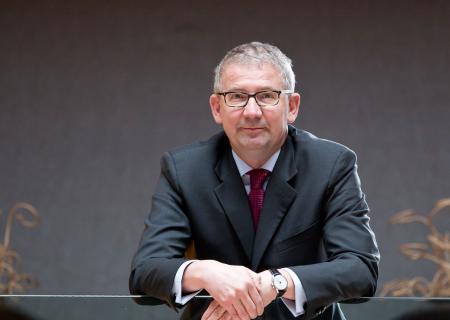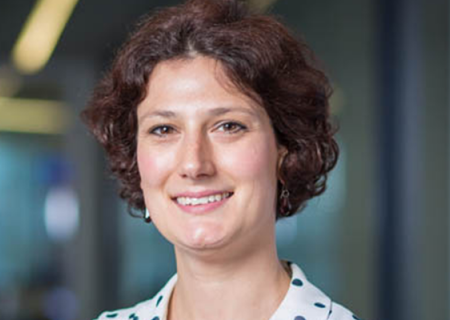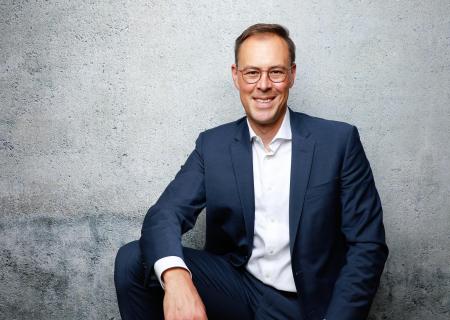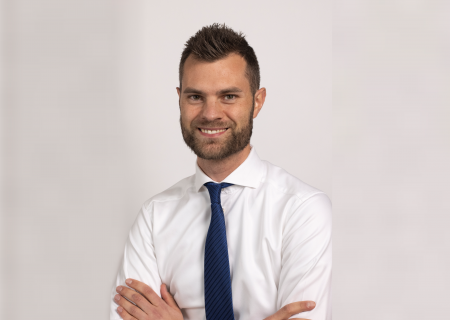Alexander Taft
Invesco Real Estate
Invesco Real Estate’s Alexander Taft on creating a global culture, and the fights he is still facing for INREV.
Global businesses need a global culture and global standards, but still need to be intelligent in regards to regional and local characteristics.
That is the message that Alexander Taft, Managing Director – Structured Finance for Invesco Real Estate, is keen to convey.
The lawyer turned fund and investment structuring expert also highlights how his work with INREV’s Public Affairs Committee is far from done in terms of the implications of AIFMD, and how Invesco is negotiating the capital raising and investment markets.
‘It is extremely important that a global business like Invesco strives to do things on a global level,’ he says. ‘It can be simple things like the look and feel of a business and cultural values. We’ve been doing that for many years, so we realise it’s important that clients feel that wherever they are, the people they are dealing with follow the same values and processes. It gives investors the feeling they are dealing with a truly global business, which is what they want.
‘Also, it’s crucial to look at how we compute things like performance,’ he adds. ‘It should be simple to identify, but it is very challenging. If you look at the ODCE Index which is compiled by NCREIF and the IPD PEPFI index, one sees they compute performance in different ways. It’s a big challenge and both, INREV and Invesco, are working hard in order to achieve comparability for proper open end fund benchmarks.
It’s crucial to look at how we compute things like performance. It should be simple to identify, but it is very challenging
‘I may be biased, but I believe the culture in Europe is actually sometimes more transparent than in the US, even though Europe is often seen as more opaque. In Europe we report returns on a triple net basis, and that hasn’t been the same in the US. NCREIF reports returns before fees, and there are other things like currency hedging and taxes which are not as relevant in US funds that need to be taken into account in pan-European strategies as well.’
Taft was one of the original members of INREV’s Public Affairs Committee, and, as such has been intimately involved in drafting the real estate industry’s response to regulation such as AIFMD. He says while the work done so far has been positive, there is still work to do.
‘We have taken a stand for the real estate industry, and while the sector is small compared to other asset classes, we have done a good job in alerting policy makers to the implications of the regulation for real estate and finding solutions.
‘But there are still a couple of things to work on. One is the matter of external valuations and unlimited liability, which currently create some unintended consequences. Under AIFMD managers can either have their assets valued externally or internally. If you seek to have external valuation of the AIFs’ real estate the external valuer cannot limit its liability based on AIFMD transposed into local statutory laws of the member states. For instance, if a Luxembourg AIFM engages a London valuation firm, that firm has to abide by Luxembourg law, and might not be able to enforce a contractually agreed liability cap.
‘So valuers are pushing to be called external advisers, which would allow them to limit their liability, which, in-turn requires the AIFM to implement internal valuation processes for the real estate. This is not an ideal solution and against investors interest who prefer independent external valuers to have the say on the AIFs property. INREV is working with ESMA and has contributed to the Capital Market Union consultation to address these points and find a proper working solution.’
Alexander says that in terms of the market itself, Invesco is positive about the immediate prospects.
‘People say that it is hard to find deals and undertake transactions because there is too much competition – but last year we bought and sold about 60 properties with a transaction volume of close to €3bn, this shows that there is a certain amount of liquidity in the market,’ he says.
‘One can’t believe that yields will come in any further, but we have been proved wrong on that before. But at the moment it has to be about looking for opportunities in the the markets where net operating income can be improved through rental growth. If interest rates and cap rates do go down further it won’t be sustainable.
‘There is a big spectrum in terms of the capital we have and the different risk levels, but we really feel we are closed out of the Paris CBD office market and we are struggling to invest in UK offices, both within and outside of London.
‘One area where we do see value in the UK is the private rented sector. We raised more than £200m for an openended vehicle to invest in this sector, and it will pursue a strategy of building assets to hold long term.’
‘In general capital raising has been strong and we expect that to continue. We have a large pan-European, open-ended fund in the market, and that continues to be of interest to investors.’
“The other pillar of our business has been separate accounts, working with large global sovereign wealth funds and pension funds. That has been a good area of growth for us, and we now have capital to invest at every part of the risk spectrum, to the point you can almost say we can go anywhere and do anything.


